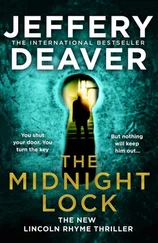“Let’s get to it.”
This was not an official dog command but Chase caught the gist, and they started down to the forest floor.
Rottweilers fall into the American Kennel Club’s “Working” group, a category of large dogs bred to guard, to pull small wagons and sleds and to perform search and rescue. The latter meant they were skilled trackers.
Shaw dug into his backpack and withdrew a plastic bag. Inside was a piece of what appeared to be wood, but was actually recycled plastic.
One of the survival skills taught by Ashton Shaw to his children was the art of hiding objects that could be found only by your allies. He never would use anything electronic, of course, but stuck with the basics. A popular technique among survivalists is to wrap the object you’ll hide in something that has a distinctive odor detectable only by tracking dogs. If you need it to be hidden for only a few days, the dog will track the hider’s scent. Ashton, however, chose something that off-gassed scent molecules for far longer than that: plastic, specifically recycled plastic, which has a strong and distinctive scent.
There were field scentometers — including the wonderfully named Nose Ranger — that might have detected the smell. But nothing located aromas better than a dog, and when circumstance provided one, he leapt at the opportunity.
Whatever was hidden here, Shaw knew, it would be in or beside something that was still, after all these years, radiating its unique smell. Shaw held it down to Chase’s nose, and he sniffed enthusiastically. Shaw hooked a long lead to the rottie’s collar and gave a true command: “Find.”
The dog didn’t race forward but moved fast in a zigzag from rock to rock, tree to bush. Shaw kept up, hurrying behind, his hand near the grip of the Colt. Detours weren’t possible now, and if it came to a confrontation, a rattler would lose.
The rottie’s nose was up, as he was air tracking. The buried treasure would be stashed in a cave somewhere, Shaw assumed, protected from the elements.
As the minutes turned to hours, Shaw began thinking that maybe this was folly. Was he here on the basis of false information? It was possible that Ashton, in one of his foggier moments, had thought he’d left the package yet in fact he had not.
However, this proved not to be the case.
Chase braked to a stop. He did what all search dogs do upon finding the target. They don’t point, they don’t bark. They sit down.
He was in front of a small cavern. A rock slide had covered most of the opening but there was a six-inch slit toward the top. Shaw gave the rottie a piece of venison jerky and crouched down, firing a beam from his tactical halogen light into the cave. No snakes. Just dust and rocks and — about eight feet past the rubble — what seemed to be a white box, about 9-by-12 inches and an inch thick, made, of course, from recycled materials. The seams were glued with thick adhesive, probably of the industrial-strength waterproof variety.
He started to pull away rocks but there was another mini-slide; he’d need a shovel and pickaxe and some timber to shore the cave entrance properly. He wasn’t going to end his quest for his father’s secret by being buried alive with it for all eternity. He’d return with the proper tools and lumber for shoring. He noted the exact location via landmarks and he and Chase began the hour-plus trek back to the cabin. They took their time on the descent — it was steep and gravelly in parts. Also, you never knew when you might come across a visitor in the middle of the path, coiled and cautious and just not in the mood to slither out of your way.
“Your boy did a good job,” Shaw said to the couple sitting on the front porch of his family’s cabin, which nestled in the expansive valley.
He rubbed Chase’s head.
“’Course he did. I trained him.” Teddy gave the dog an ear scratch too.
Velma laughed, nodded toward her husband. “Trained him to lie at your feet while you dish up a big helping of Netflix.” Her voice was low and as smooth as her husband’s was rough.
Teddy scoffed. “It’ll come in useful someday: That dog’ll never twitch a muscle when a superhero lands in front of him with a crash and does that down-on-one-knee thing. Why do they do that?”
Shaw had no clue what the man was talking about.
Velma and Teddy Bruin were visiting from Florida, where they were Shaw’s neighbors. Both of their properties — each several acres in size — fronted a large and picturesque body of water in the north central part of the state. It was reportedly gator free.
Never believe it when somebody selling you lakefront property tells you there are no gators.
In fact Shaw had never seen any of the reptiles but he was inclined to accept that rule.
Teddy, early sixties, was round and rosy and — as his names, both family and nick, implied — had a bear-like quality, enhanced by a lengthy beard of the sort favored by Civil War generals. The man wore a brown hat, a slouch — the Australian military one. The right brim was pinned up to the crown, so a slung rifle wouldn’t bump it. Not all that helpful if you weren’t on the parade grounds, as the uneven tan on Teddy’s face proved.
Slim Velma, about the same age, wore her gray-blond hair up in a do that dated to the 1960s, sprayed into the shape of a beehive, which Shaw believed was the style’s actual name. Like her husband, she was in trekking khakis.
While they were indeed Shaw’s neighbors, the couple was much more than that. They ran the business side of Shaw’s operation, scanning the media for reward offers and supervising a bot that did the same online. They also took care of the finances and accounting, tasks that utterly bored Colter Shaw and at which he therefore was inept.
He had yet to tell Velma that he’d given away the Ecumenical Council’s entire $50,000. Shaw was forever discounting rewards, if the offerors were in tough straits, or giving them extended payment plans. Velma didn’t approve of his generosity and was quite vocal about championing his financial well-being.
The couple and Chase were making a cross-country trip in their camper (Shaw had bought his own Winnebago largely because of the test-drive he’d taken in theirs). A visit to California, of course, meant a side trip to the Compound to visit Shaw and his mother.
Shaw examined something protruding from Teddy’s pocket.
“Is that an air horn?” Shaw asked.
“For bears,” was the raspy reply.
The black bear population in California hovered around forty thousand, which was a lot of bears. There’d been attacks over the years, though to Shaw’s knowledge the only black-bear-related fatality in the entire state in recent history involved a bear’s killing a mountain lion that was attacking a hiker, saving the human. The unharmed bear wandered off, leaving the man with a sense of breathless relief and more than a little regret that he’d neglected to get a video.
The creatures were generally docile and timid. And, yes, they did not like loud noises. If Shaw was concerned about bears, though, especially during cub season, he carried pepper spray.
Velma chided her husband: “Air horn versus a bear. Isn’t that like bringing a knife...” She paused.
Shaw knew the expression: bringing a knife to a gunfight.
However, she finished with: “...to a fight where the other guy has a bigger knife?”
Teddy and Shaw laughed.
Velma said, “We didn’t see any. Bears. I was hoping.” She frowned as a thought arose. “Hey, Colt. I got the check for the thousand sixty dollars — the reward Erick Young’s family offered. But I haven’t heard a stitch about the big one. The fifty K. Should I call somebody about it?”
Читать дальше
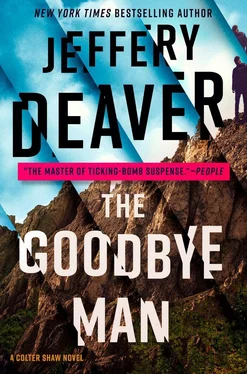
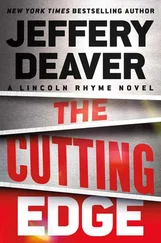

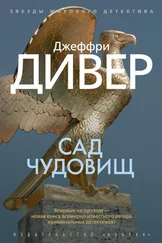
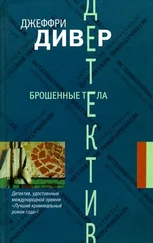

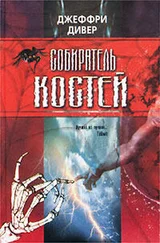
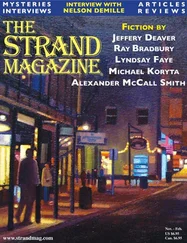
![Джеффри Дивер - Where the Evidence Lies [A Lincoln Rhyme Short Story]](/books/403782/dzheffri-diver-where-the-evidence-lies-a-lincoln-r-thumb.webp)

